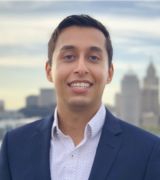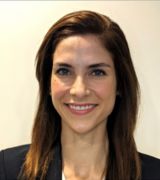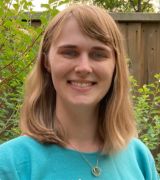Education
Program Contact
Shazia Donachie
Program Coordinator, PGME for Medical Oncology
Department of Oncology
Schulich School of Medicine & Dentistry
800 Commissioners Road East
London, Ontario N6A 5W9
t. 519.685.8600 x57433
e. shazia.donachie@lhsc.on.ca
Related Links
Medical Oncology Program
Welcome
Western University’s Medical Oncology Postgraduate Training Program is a hidden gem within Southwestern Ontario and we are fortunate to have over 20 faculty with a wealth of specialized skill and knowledge in all aspects of research and education, most of whom have advanced degrees, training and experience in their respective areas.
The two-year program offers a diverse array of exceptional training in all core competencies outlined by the Royal College of Physicians and Surgeons of Canada. Our program is comprehensive and designed to train residents to work with diverse patient populations and in diverse practice settings. Residents in our program have access to many additional clinical, academic and research training opportunities throughout the program.
The most unique feature of our program is that the residents in Medical Oncology work one-on-one with the medical oncologists. This affords the greatest amount of teaching and commitment to excellence as residents develop independent diagnostic and therapeutic skills over the two-year training period. Also, towards the end of the first year of training, the residents participate in a weekly Resident Longitudinal clinic, and has its own primary nurse assigned to work with the resident. Residents attend to patients in this clinic until the completion of their oncology training. This allows the residents to manage patients throughout the full course of their treatment, and augments their clinical skills, confidence and consultant level abilities in order to be better prepared for independent practice.
The residency program is conducted at one main site within the London Health Sciences Centre Verspeeten Family Cancer Centre which is part of the Victoria Campus of London Health Sciences Centre. There are options to do some rotations such as Hematology at the Windsor Regional Cancer Centre, and we have connections with many community hospitals in the area.
We welcome you to further explore the information herein that further supports our commitment to training and education in the Medical Oncology Residency program.
Dr. Paul Stewart
Residency Program Director
Division of Medical Oncology
Western University, Schulich School of Medicine and Dentistry
Residents and Fellows
PGY4
 |
 |
 |
| Dr. F. Hussain | Dr. R. Sambhi | Dr. M. Smith-Uffen |
PGY5
 |
| Dr. C. Browne |
Fellows
- Dr. S. Fasih (Breast)
- Dr. S. Khan (Lung)
- Dr. A. Rajeh (Sarcoma)
- Dr. S. Verma (Lung)
Application and Appointment of Trainees
Medical Staff: Medical Oncologists
- Dr. P. Blanchette, Medical Oncologist
- Dr. D. Breadner, Medical Oncologist
- Dr. S. Climans, Neuro-Oncologist
- Dr. L. Dodbiba, Medical Oncologist
- Dr. S. Ernst, Medical Oncologist
- Dr. R. Fernandes, Medical Oncologist & Fellowship Director
- Dr. D. Giffoni, Medical Oncologist
- Dr. K. Hahn, Medical Oncologist & Department Chief
- Dr. L. Hanna, Medical Oncologist
- Dr. S. Kuruvilla, Medical Oncologist & UGME Co-Program Director
- Dr. J. Lenehan, Medical Oncologist
- Dr. D. Logan, Medical Oncologist
- Dr. A. Lohmann, Medical Oncologist
- Dr. M. MacDonald - Neuro-Oncologist
- Dr. H. Mithoowani - Medical Oncologist
- Dr. V. Panuganty, Medical Oncologist
- Dr. K. Potvin, Medical Oncologist
- Dr. J. Raphael, Medical Oncologist
- Dr. M. Sanatani, Medical Oncologist & Faculty Mentorship Lead
- Dr. P. Stewart, Medical Oncologist & Residency Program Director
- Dr. E. Tsvetkova, Medical Oncologist
- Dr. M. Vincent, Medical Oncologist
- Dr. S. Welch, Medical Oncologist & Department Chair
- Dr. E. Winquist, Medical Oncologist
- Dr. J. Younus, Medical Oncologist
Training Requirements for Entry into Program
Academic Curriculum
LOCAL Curriculum
Our program is pioneering a new curriculum format, with longitudinal rotations for the major disease sites, referred to as the LOCAL curriculum. As part of this longitudinal curriculum, multiple educational sessions per disease site are arranged with each resident's disease site coach, allowing for review of important trials and discussion regarding clinical areas that are more expert opinion-based. For more details, please see the Clinical Curriculum section.
The LOCAL curriculum is an overarching curriculum which encompasses clinical rotations and is organized around disease sites. The goal of the LOCAL curriculum is to promote coaching as the primary style of teaching within medical oncology’s competency-based curriculum. This is done by structuring disease site rotations, faculty supervision, and other learning activities over longitudinal periods. Longitudinal disease site rotations allow residents to focus their learning, patient care, and training experiences in those disease sites and establish coaching relationships with faculty to encourage both coaching in the moment and coaching over time.
Within each disease site, residents will be assigned a faculty coach, who will supervise the resident in clinic, and meet with the resident regularly outside of clinic for coaching sessions on disease site topics. EPAs still form the primary activity for assessment in clinic, and the primary means for assessment of progression through the competency committee. Staff are encouraged to structure their teaching and provide feedback using a coaching model.
Disease site rotations are grouped to allow longitudinal exposure with their faculty coaches. For example, the GI disease site has 3 blocks and these are scheduled consecutively with the resident’s GI coach supervising over that entire period. Residents spend most of their time in clinic with that lead coach but do rotate with other faculty to gain an appreciation of variations in practice and for breadth of exposure across the disease site. The major disease sites (GU/GI/Thoracic/Breast) are prioritized to be done mostly within PGY4 during the TTP, Foundation and Core stages of training. Residents rotate through the minor disease sites during PGY5. The major disease sites are revisited during the resident’s longitudinal clinic throughout PGY5.
Academic Half Day
Residents are required to attend the Medical Oncology Academic Half Day at the Verspeeten Family Cancer Centre at LHSC once a week. Teaching sessions are designed to prepare residents not only for the Royal College exam, but life outside the program, and foster a fulfilling and successful career. Topics include:
- Disease Sites
- Clinical Trials
- Ethics
- Communication
- Wellness
- Professionalism
- Finances
- Career Planning
Residents can also expect to be challenged during other learning opportunities such as practice exams, while soaking up new ideas and knowledge through rounds, and journal clubs. Opportunities include:
- Disease Site Group Meetings
- Resident Rounds (weekly)
- Multi-disciplinary Tumour Boards (present a case every rotation)
- ASCO ITE (annually)
- Grand Rounds - weekly lecture series featuring speakers from all disciplines, across the globe
- Resident Grand Rounds - annual presentation to help residents prepare for conference season
- Basic Science Self-Study Reports
- Resident Journal Club (present 2-3 times per year)
- Faculty Journal Club
- Resident Research Rounds (annual)
- Serious Illness Conversation Workshop (annually)
Clinical Curriculum
| Disease Site | # of Blocks | |
| Medical Oncology | Breast | 3 |
| Thoracic | 3 | |
| Gastrointestinal | 3 | |
| Genitourinary | 3 | |
| Head & Neck/Cutaneous | 2 | |
| Gynecological/CNS | 2 | |
| Sarcoma | 0.5 | |
| Chemo Call/Research | 1 | |
| Radiation Oncology | 0.5 | |
| Palliative Care | 1 | |
| Hematology | 2 | |
| Electives | 5 |
The Residency Program consists of 18 blocks of outpatient medical oncology clinics that are disease site specific. Residents do two blocks of Hematology, which can be done in London, or at a peripheral site in Windsor based on the resident's preference and schedule availability. Residents will also complete one block each in Radiation Oncology (combined with Sarcoma), Palliative Care, and Chemotherapy unit call. Three blocks are available for external experiences and two for internal electives including research time. There is significant flexibility in time and use, based on the needs of the resident and agreed upon by the Program Director.
Research Resources
- Cancer Research Laboratories: The cancer research laboratories of the London Regional Cancer Program (LRCP) and Western University are located within the LRCP. Translational research fellowships are also available through the Department of Oncology to those completing the required two years of Medical Oncology training.
- Western University: Western is one of Canada’s premiere universities with world-class faculty offering research and advanced training opportunities in many areas related to medical oncology e.g. Immunology, Pharmacology, Genetics, Epidemiology and Biostatics.
- Clinical Trials Centre:The clinical trials centre of the LRCP is one of the largest oncology clinical trial centres in Canada. There are Phase II and Phase III clinical trials in progress for many disease sites. Phase I facilities are being developed in conjunction with the Department of Pharmacology and the Cancer Research Laboratories.
Longitudinal Clinic
Starting in May-June of their R4 year, residents will run clinic on Wednesdays with a rotating roster of supervising Medical Oncology staff. This clinic continues for one year to allow residents the opportunity to follow patients through their complete treatment course. In conjunction with a primary nurse, the residents will see one new consult per week as well as a limited number of scheduled follow-up patients. The residents will see the consult first, develop a management plan, and then discuss the case with the designated Medical Oncologist who ultimately remains the most responsible physician (MRP). The MRP will meet the patient, directly observe the resident going through the management plan with the patient and be available to answer any questions the resident is unable to.
This management plan will also be presented that morning at Resident Case Rounds, attended by the MRP and other staff as able. The case will be discussed, as well as any relevant learning points for the case, so the resident can be prepared for their clinic and so formal teaching around the case can occurr.
Once the consultation occurs with the patient’s consent, from that point onward, the patient’s follow-up care will continue in the residents’ clinic. The MRP will remain available to the resident for any issues that arise, but will not come to directly see the patient unless so requested by the patient or the resident. Any major changes in treatment or management will be discussed with the MRP before implementation. Copies of notes from all clinic visits are to be sent to the MRP as well as the family doctor and referring physicians to keep them up to date on the patients’ status. If residents are away on the clinic day for any reason, they are expected to arrange coverage for their patients with another resident or the MRP.
The cases for consultation will be selected by the residents to allow for expertise with triage, in consultation with the supervising MRP and the Medical Oncology Program Director, and will span the major disease sites. Cases will be “bread and butter” to gain solid expertise in the most common oncologic scenarios. However, residents may also occasionally see rare or interesting cases for the purposes of enhancing their education.
At the end of the year of clinic, the patients will be absorbed into the practices of the MRPs in order to ensure seamless continuity of care.
Resident Research
- Integrate best available evidence into practice
- Contribute to the creation and dissemination of knowledge and practices applicable to health
The curriculum includes a monthly session on various elements of Research Methodology, Critical Appraisals, and Epidemiology of cancer. To apply the principles from the Research Scholar Curriculum, this program also encompasses Resident Journal Club (every second month) and Resident Research Rounds (formal appraisals 1 sessions/year).
Residents will be required to present their research outcomes to the following:
- 1 abstract submission for each resident to an international conference
- 1 publications
- Resident to present at MO Faculty Journal Club once every 2 years
Medical Oncology Ward Services (MOWS)
The Medical Oncology Ward Service (MOWS) is run by out inpatient hospitalist team Monday to Friday. Residents will participate in overnight and weekend call on this ward, accompanied and supported by the on-call oncologist. There is no longer a dedicated MOWS block, as it was felt this time was better used for chemotherapy call to ensure the resident is capable of responding to acute chemotherapy related issues.
Enhanced Skills in Oncology Program
In collaboration with the Department of Family Medicine, the Medical Oncology program provides family physicians with knowledge and skills to care for patients with cancer. The program is open to family medicine residents who have successfully completed their training in an accredited Canadian residency program. The General Practitioner-Oncology (GP-O) model is a step above what the typical family physician would provide in oncological care to patients and has been around for over twenty years in Canada. Residents will gain experience in a wide variety of tumour sites. The bulk of activities will be outpatient oriented and will occur in a Multi-disciplinary setting. Much of the training will occur at the London Regional Cancer Program at London Health Sciences Centre (Victoria Campus) but may also occur at the Windsor Regional Hospital. A strong focus will be managing oncology emergencies and managing problems in the chemotherapy suite.
Current Resident
Not applicable at this time
Program Alumni
Dr. Daphne Southcott, 2019 - 2020
Dr. Priya Patel, 2020 - 2021
Dr. Nicholas Chandna, 2022 - 2023
Dr. Anish Tejura, 2023 - 2024
For more information, please visit our Enhanced Skills - Family Medicine - Western University page.
Contact Us
For more information on the Medical Oncology Program, contact us at MedOnc.ChiefResident@lhsc.on.ca.








